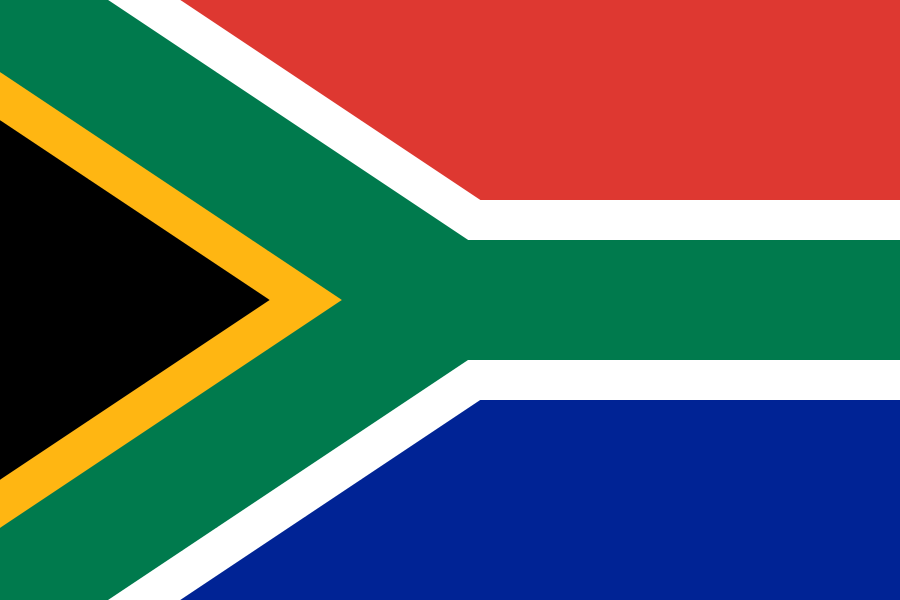Dutch traders landed at the southern tip of modern day South Africa in 1652 and established a stopover point on the spice route between the Netherlands and the Far East, founding the city of Cape Town. After the British seized the Cape of Good Hope area in 1806, many of the Dutch settlers (Afrikaners, called "Boers" (farmers) by the British) trekked north to found their own republics in lands taken from the indigenous black inhabitants. The discovery of diamonds (1867) and gold (1886) spurred wealth and immigration and intensified the subjugation of the native inhabitants. The Afrikaners resisted British encroachments but were defeated in the Second South African War (1899-1902); however, the British and the Afrikaners, ruled together beginning in 1910 under the Union of South Africa, which became a republic in 1961 after a whites-only referendum. In 1948, the Afrikaner-dominated National Party was voted into power and instituted a policy of apartheid - the separate development of the races - which favored the white minority at the expense of the black majority. The African National Congress (ANC) led the opposition to apartheid and many top ANC leaders, such as Nelson MANDELA, spent decades in South Africa's prisons. Internal protests and insurgency, as well as boycotts by some Western nations and institutions, led to the regime's eventual willingness to negotiate a peaceful transition to majority rule. The first multi-racial elections in 1994 following the end of apartheid ushered in majority rule under an ANC-led government. South Africa has since struggled to address apartheid-era imbalances in decent housing, education, and health care. ANC infighting came to a head in 2008 when President Thabo MBEKI was recalled by Parliament, and Deputy President Kgalema MOTLANTHE, succeeded him as interim president. Jacob ZUMA became president after the ANC won general elections in 2009; he was reelected in 2014.
South Africa is a parliamentary republic.
Source: CIA World Factbook
Members:
Resources
Displaying 1 - 5 of 94Urban Innovations
This publication provides an overview of the theory and practice of urban innovation together with perspectives, trends and international experiences in this area. The publication seeks to stimulate debate and creative thinking around different approaches to dealing with every day urban challenges by presenting a collection of potetnially replicable local and international case studies.
Sectional Titles Amendment Regulations, 2017 (No. R. 427 of 2017).
These Regulations amend the Regulations made under the Sectional Titles Act, 1986 with respect to various matters, with various references to the Sectional Titles Schemes Management Act, 2011. Matters concern mainly documentation and certification. Regulation 30 on management rules as contemplated in section 35 (2) (a) of the Sectional Titles Act, 1986 and regulation 39 on arbitration are repealed.
Amends: Regulations made under the Sectional Titles Act, 1986. (1988-04-08)
By-law on Spatial Planning and Land Use Management (G.N. No. 2 of 2016).
This By-Law made under the Spatial Planning and Land Use Management Act, 2013, applies to all land within the geographical area of the Ndlambe Municipality, including land owned by the state. The By-law shall, in case of conflict, in principle prevail over other legislation. The By-law requires a municipal spatial development framework to be made and provides with respect its preparation and public participation procedures. The Municipality may also adopt a local spatial development framework for a specific geographical area of a portion of the municipal area.
Spatial Planning and Land Use Management Act: Bylaws for Engcobo (G.N. No. 5 of 2016).
This By-Law made under the Spatial Planning and Land Use Management Act, 2013, applies to all land within the geographical area of the Engcobo Municipality, including land owned by the state. The By-law shall, in case of conflict, in principle prevail over other legislation. The By-law requires a municipal spatial development framework to be made and provides with respect its preparation and public participation procedures. The Municipality may also adopt a local spatial development framework for a specific geographical area of a portion of the municipal area.
Spatial Planning and Land Use Management Act: Bylaws for Kouga (G.N. No. 3 of 2016).
This By-Law made under the Spatial Planning and Land Use Management Act, 2013, applies to all land within the geographical area of the Kouga Municipality, including land owned by the state. The By-law shall, in case of conflict, in principle prevail over other legislation. The By-law requires a municipal spatial development framework to be made and provides with respect its preparation and public participation procedures. The Municipality may also adopt a local spatial development framework for a specific geographical area of a portion of the municipal area.


